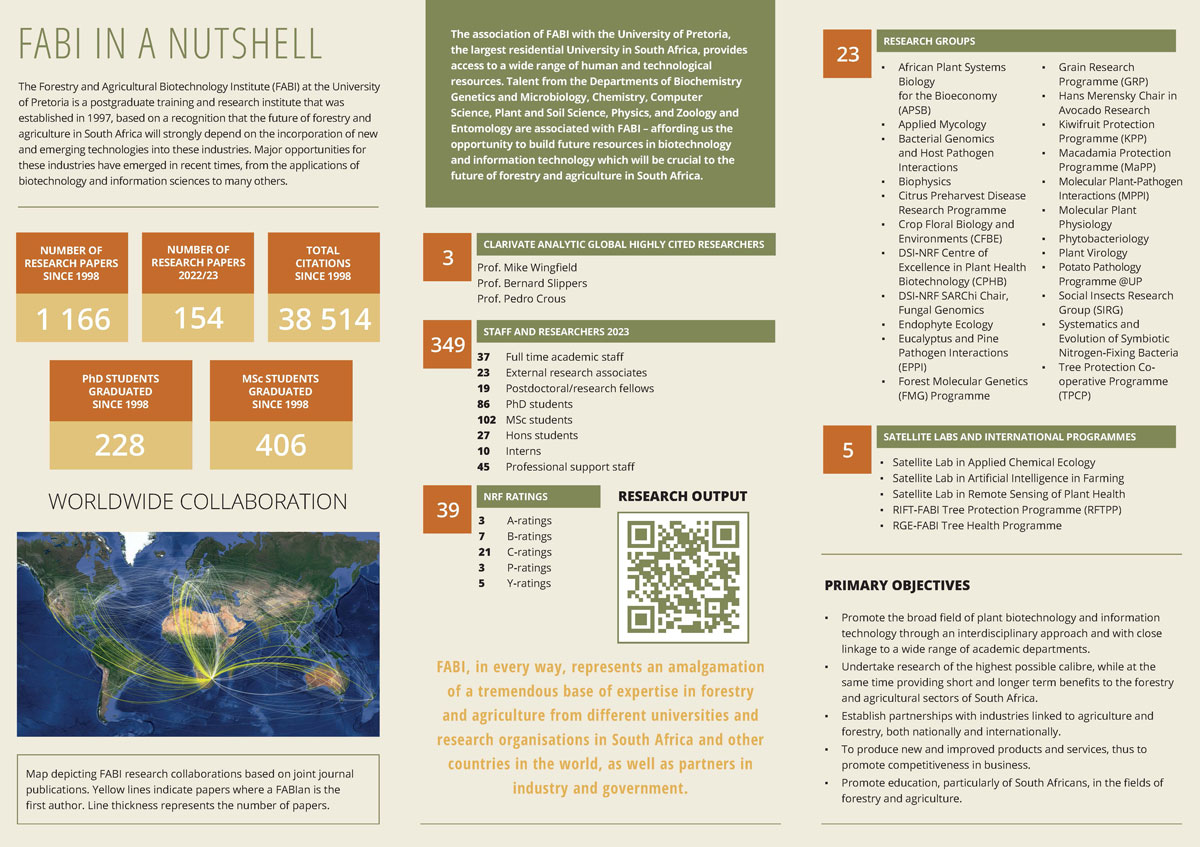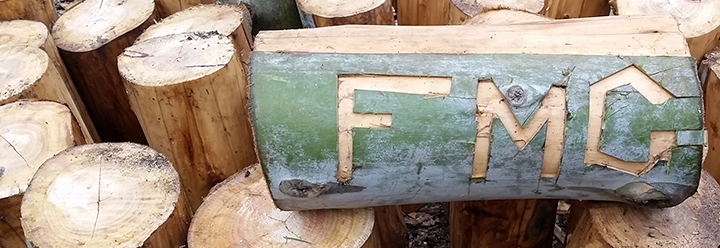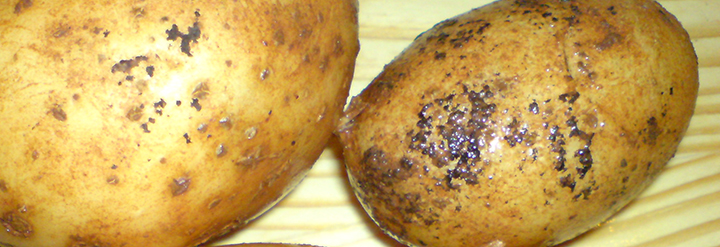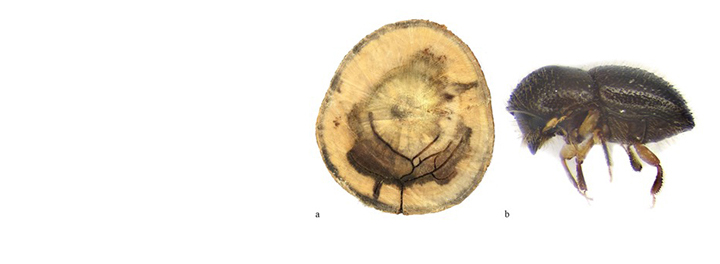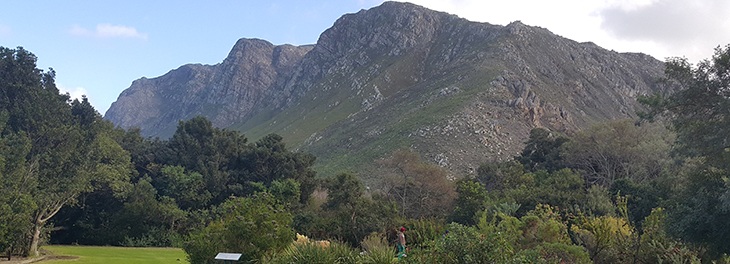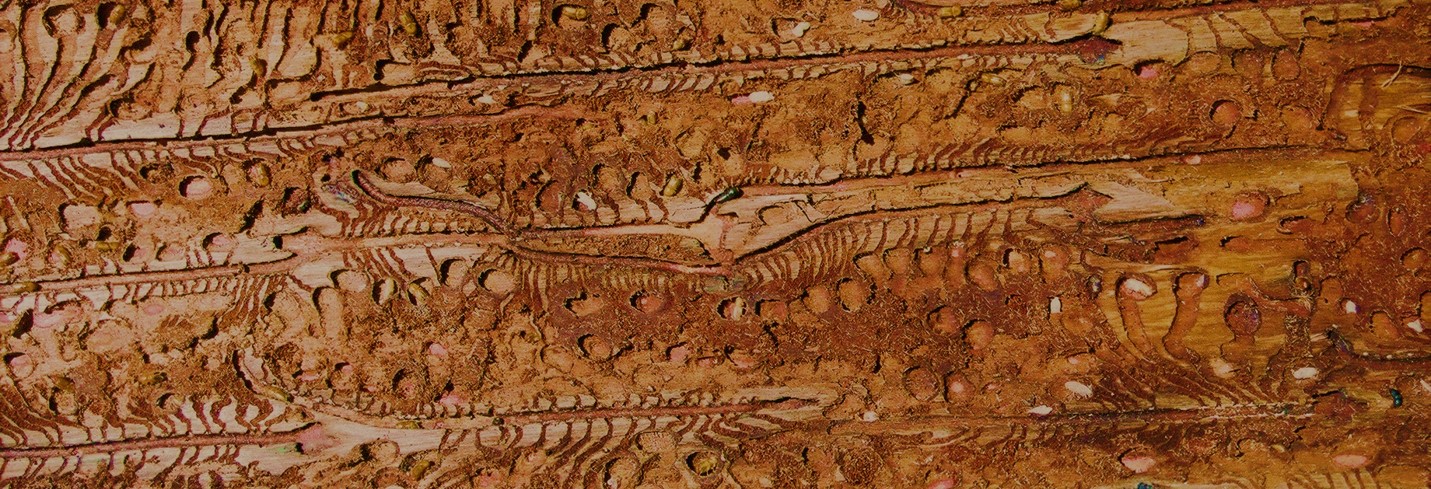FABI, the Forestry and Agricultural Biotechnology Institute, at the University of Pretoria, is a post-graduate research institute that was established in 1997, based on a recognition that the future of forestry and agriculture in South Africa will strongly depend on the incorporation of new and emerging technologies into these industries. Major opportunities for these industries have emerged in recent times, from the applications of biotechnology and bioinformatics, amongst many others. FABI scientists undertake goal-directed research, in partnership with major players in the forestry and agricultural sectors in South Africa and in so doing, promote both human capital and industrial development in the country.

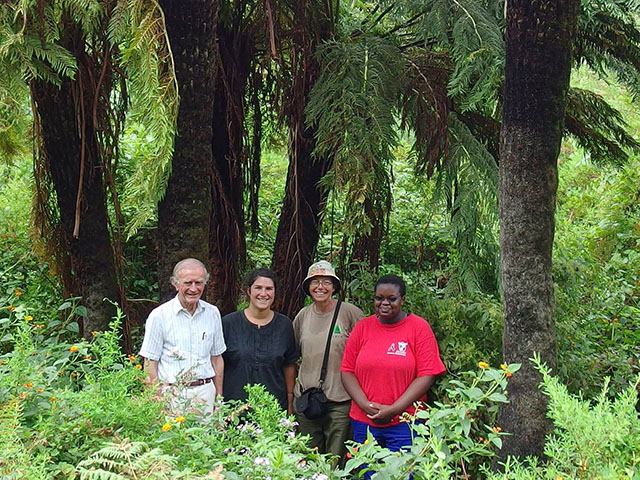
FABI, the Forestry and Agricultural Biotechnology Institute, at the University of Pretoria, is a post-graduate research institute that was established in 1997, based on a recognition that the future of forestry and agriculture in South Africa will strongly depend on the incorporation of new and emerging technologies into these industries. Major opportunities for these industries have emerged in recent times, from the applications of biotechnology and bioinformatics, amongst many others. FABI scientists undertake goal-directed research, in partnership with major players in the forestry and agricultural sectors in South Africa and in so doing, promote both human capital and industrial development in the country.
Being based at the University of Pretoria provides FABI with the capacity to build future human resources in biotechnology, that are crucial to the future of forestry and agriculture in South Africa. It also enables collaboration and linkage with the majority of statutory bodies undertaking research in the plant and animal sciences. Additional value comes from training grants, participation of students in research programmes, and an enormous human and technological resource associated with this University.
Staff at the University of Pretoria linked to FABI, have also had long-term associations with the fruit tree industry as well as with many other programmes linked to agricultural and forestry crops. Since its establishment, FABI has grown rapidly. FABI is made up of about 240 people including, more than 20 academic staff, 150+ postgraduate (Hons, MSc, PhD) students, postdoctoral fellows, research visitors, and a small core of technical and support staff. Approximately 30 languages are spoken by members of the FABI Team, illustrating a remarkably multinational and multicultural group.






